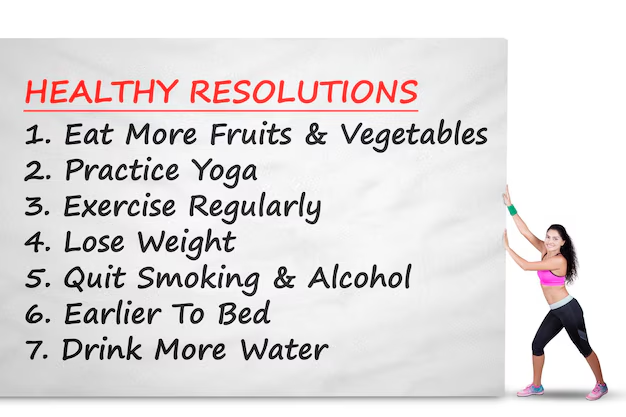
In today’s fast-paced world, maintaining good health and wellness can often feel like a challenge. Between juggling work, family, and personal commitments, it’s easy to lose track of our wellness goals. However, achieving a healthy lifestyle doesn’t have to be difficult or overwhelming. Whether you’re working from home, navigating a busy career, or raising a family, there are simple, effective strategies that can fit into any lifestyle. Here are some practical health tips to help you stay on track, no matter where you are in your wellness journey.
1. Set Realistic, Achievable Goals
One of the most important steps in achieving your wellness goals is setting realistic and specific targets. Rather than aiming for broad, overwhelming objectives like “get fit” or “eat healthier,” break these goals down into smaller, actionable steps. For example, commit to walking 10,000 steps per day or eating a fruit or vegetable with every meal. Small goals are more manageable and can keep you motivated as you see progress over time.
2. Incorporate Movement Into Your Day
Regardless of your daily routine, it’s crucial to incorporate physical activity into your day. You don’t need to hit the gym for an hour to stay active—simple adjustments can make a significant difference. Consider walking or cycling to work, taking the stairs instead of the elevator, or using a standing desk. If you work from home, take short movement breaks every hour to stretch, walk around, or perform light exercises. These small changes will add up and contribute to overall physical wellness.
3. Prioritize Sleep
Sleep is often one of the most overlooked components of a healthy lifestyle, but it’s essential for maintaining both mental and physical health. Aim for 7-9 hours of quality sleep each night to allow your body to repair, recharge, and reset. Establish a regular sleep routine by going to bed and waking up at the same time each day, creating a relaxing pre-sleep ritual, and ensuring your bedroom is a comfortable, tech-free environment.
4. Focus on Nutrient-Dense Foods
Healthy eating doesn’t require a drastic diet overhaul. Focus on incorporating nutrient-dense foods into your meals, such as fruits, vegetables, whole grains, lean proteins, and healthy fats. Start by making small, intentional swaps—like choosing brown rice over white rice or adding spinach to your morning smoothie. Stay mindful of portion sizes, and try to eat mindfully, paying attention to hunger and fullness cues. Hydrating properly by drinking water throughout the day is also key to maintaining your energy levels.
5. Manage Stress Effectively
Stress is a natural part of life, but chronic stress can negatively impact your physical and mental health. It’s important to identify stressors and adopt strategies to manage them. Regular relaxation practices such as meditation, deep breathing exercises, or yoga can help reduce stress levels. Even just taking a few minutes a day to focus on your breath or to practice mindfulness can make a big difference in how you feel.
6. Stay Socially Connected
Strong social connections contribute to improved mental and emotional health. Make time to connect with friends, family, or coworkers, whether through in-person gatherings or virtual meetups. Social support can provide encouragement and accountability in your wellness journey, and it’s also a great way to foster a sense of community and reduce feelings of isolation.
7. Listen to Your Body
Above all, listen to your body. If you’re feeling fatigued or unwell, take the time to rest. If something feels off during a workout, adjust your routine accordingly. Your body is a powerful tool, and by tuning into its signals, you’ll be able to avoid burnout and stay on the path to wellness. Regular check-ins with your physical and mental health will also help you stay in tune with your overall well-being.
8. Embrace the Journey
Remember, wellness is a journey, not a destination. There will be ups and downs along the way, and it’s important to be kind to yourself. Celebrate small wins, and don’t get discouraged by setbacks. With consistency and patience, you’ll continue to make progress towards your goals.
Conclusion
Achieving your wellness goals is about making small, sustainable changes that fit into your lifestyle. By setting achievable goals, incorporating physical activity, prioritizing sleep, eating nutritious foods, managing stress, staying connected, and listening to your body, you can create a healthier, more balanced life. No matter where you are on your wellness journey, taking consistent steps toward self-care will help you feel your best and live a vibrant life.












